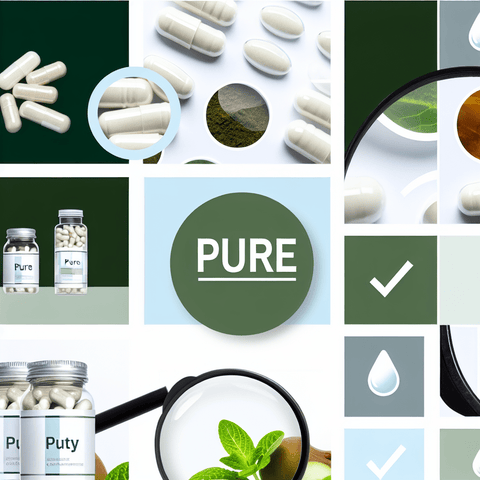Introduction
In an age where health consciousness is on the rise, many individuals are turning to nutritional supplements to assist in achieving optimal immune health. With a plethora of options available in the market, it can be overwhelming to choose the right supplement that fits your needs. This comprehensive guide will walk you through essential tips for selecting the right supplement to boost your immune health, focusing on key ingredients and what to consider before making a choice. We will explore the roles of vitamins such as Vitamin C, Vitamin D, and others, providing you with a science-backed approach to supporting your immune system.
Understanding the Role of Supplements in Immune Health
Supplements serve as a powerful adjunct to a healthy diet and lifestyle, providing necessary nutrients that might be lacking in your daily intake. The immune system is a complex network that requires various nutrients to function optimally. Nutritional supplements can help fill the gaps, ensuring your body has the tools it needs to fend off infections and maintain overall health. However, it’s crucial to understand that supplements are not a cure-all; they work best when used in conjunction with proper nutrition and healthy habits.
Vitamin C: A Key Player in Immune Support
Vitamin C is renowned for its immune-boosting properties. As an antioxidant, it protects cells from damage caused by free radicals and supports various cellular functions of both the innate and adaptive immune system. The body cannot produce Vitamin C on its own, making it essential to obtain it through diet or supplements. High-quality Vitamin C supplements can be an excellent choice for those looking to enhance their immune function. For more information on the benefits of Vitamin C, you can visit the Vitamin C collection on Topvitamine.com.
The Importance of Vitamin D in Immune Regulation
Vitamin D plays a critical role in modulating the immune response. It enhances the pathogen-fighting effects of monocytes and macrophages — white blood cells that are important parts of your immune defense — and decreases inflammation. Studies have shown that individuals with adequate Vitamin D levels are less likely to experience respiratory infections. Given that Vitamin D is not abundantly available in food, supplementation is often necessary, especially for individuals living in areas with limited sunlight exposure. Explore the Vitamin D collection for a range of supplement options.
Magnesium: Supporting Energy and Immune Function
Magnesium is a vital mineral that supports hundreds of biochemical reactions in the body, including those that involve the immune system. It plays a role in energy production, which is essential for the functioning of immune cells. A deficiency in magnesium can lead to a weakened immune response, making it crucial to ensure adequate intake through diet or supplementation. For those looking to enhance their immune health with magnesium, consider visiting the magnesium collection for more options.
Exploring Other Beneficial Nutrients: Zinc, Selenium, and More
Zinc and selenium are two trace elements that have been extensively studied for their roles in immune function. Zinc is crucial for the normal development and function of cells mediating innate immunity, such as neutrophils and natural killer cells. Selenium, on the other hand, is important for the regulation of oxidative stress and inflammation. Both nutrients can be found in various supplements, often combined with other immune-supporting ingredients to provide comprehensive support.
Considerations When Choosing a Supplement
When selecting a supplement, it's important to consider factors such as bioavailability, dosage, and the presence of any additional ingredients that may enhance or inhibit the desired effects. Opt for supplements from reputable brands that adhere to stringent quality control measures. Additionally, consult with healthcare professionals to tailor your supplement regime to your specific health needs, especially if you have underlying health conditions or are taking medications.
Conclusion
Choosing the right supplement for immune health involves understanding the roles of various nutrients and how they contribute to immune function. By focusing on essential vitamins and minerals such as Vitamin C, Vitamin D, and magnesium, you can support your body’s natural defenses effectively. Always prioritize high-quality products and consult with healthcare professionals to ensure your supplement choices align with your health goals.
Q&A Section
Q: Can I rely solely on supplements to improve my immune health?
A: While supplements can provide essential nutrients that may be lacking in your diet, they work best in conjunction with a balanced diet and healthy lifestyle.
Q: How do I know if I need a supplement?
A: Consult with a healthcare professional to assess your nutritional needs and determine if supplements are necessary for your specific situation.
Q: Are there any risks associated with taking immune-boosting supplements?
A: While supplements can be beneficial, excessive intake of certain vitamins and minerals can lead to adverse effects. It is important to adhere to recommended dosages and consult with healthcare providers as needed.
Important Keywords
Immune health, supplements, Vitamin C, Vitamin D, magnesium, zinc, selenium, antioxidants, immune system support, nutritional supplements, immune function, Topvitamine.com.



